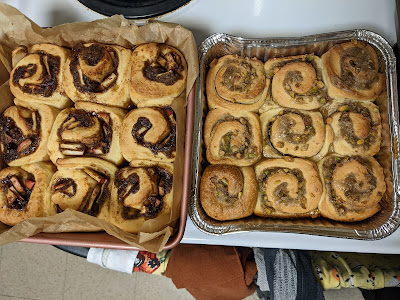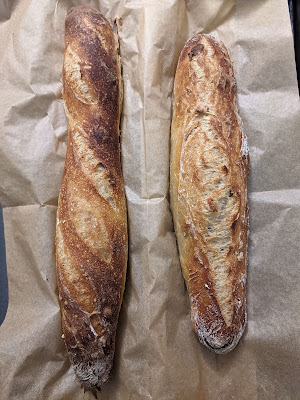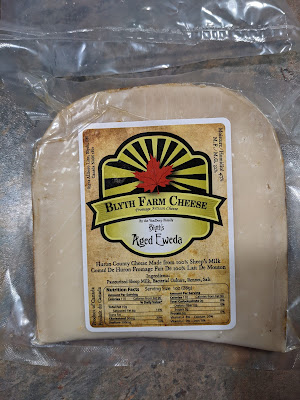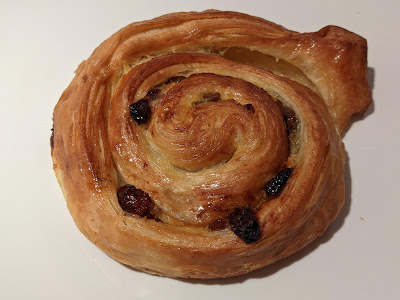Some of these are very obvious requests. The patient has progressive cancer, the cancer is spreading throughout the body and “taking over” their life. The patient has failure of a vital organ and it deteriorates to the point of not being able to sustain organ function. In these cases, it is clear what the palliative care team’s involvement is. As the active treatments taper off, the palliative care side of things become dominant. We focus more on the patients’ comfort, their symptoms and on doing what we can to achieve a comfortable dignified death.
But some of our palliative care consults are not so obvious. It is hard to peel back what is behind the requests sometimes. What does it mean when someone who is not “obviously” dying requests palliative care consultation to talk about dying? How do we understand what it really means when patients say that they have “had enough”?
I once saw a lady who had been in hospital for five months after having a double lung transplant. Her story I will tell another day. She was well and truly fed up with the hospital. She hadn’t slept well for months, she was sick of being woken up every night by the nurses who wanted to check her blood pressure. She was sick of all the blood tests, her arms never having the opportunity to recover when they were being poked and prodded all the time. She was sick of all the doctors not talking to each other and asking her the same questions all the time.
She had been thinking about dying for well over a month when she insisted to the lung transplant team that she wanted to talk to palliative care. They told her that she was doing “too well” for palliative care, and that she didn’t really need palliative care. After all, wasn’t she “recovering” from her transplant? She insisted and eventually they relented.
When I met her, we talked about the options going forward. We talked about Medical Assistance In Dying (MAID), and what it involves. Once she understood what it would really look like, she said she didn’t want MAID. We talked about best supportive care, of stopping her active treatments and allowing her life to take its natural course. Once she understood what it would look like to stop her anti rejection meds and to reject her transplanted lungs in a “natural” state, she said she didn’t want to go ahead with best supportive care either. Well, what was left? She was sick of the hospital, but she didn’t want to die either. We talked about rehab and going home, and eventually that was where we left it. We talked together to her daughter who said she was going to buy a sofa bed and move into her apartment to help once she was discharged.
It sounds like a “funny” story that one could be asking for palliative care so as to consider the options for dying, and then end up with the conclusion of going to rehab. But this is very real for many patients. After all, how do we know what dying involves if we don’t explore what dying means?
This brings me to the next question, what does it mean to ask for MAID?
In the old days, there was no Medical Assistance In Dying. Essentially, it was illegal to give any medications to hasten someone’s death. One could lose one’s medical licence, or worse, end up in jail, for helping someone to hasten their own death. In the countries where it did not exist, it became a clandestine operation that some patients took into their own hands by contacting Euthanasia communities in other countries where it was legal. Patients with cancer flew across the world to access MAID-equivalents in countries where they could access it.
Then MAID was legalised in Canada and the whole landscape of dying changed. Patients with a foreseeable death were permitted to apply for MAID once they met certain criteria. But it was an arduous process. They had to sign a form, undergo two separate independent assessments by “MAID clinicians”, doctors who were trained to assess intent and suitability for MAID. The patients had to be of sound mind, not confused, able to make their own decisions and not be coerced by others. They had to prove that their illness was life-limiting, which was often hard to determine since doctors usually erred on the conservative side if the exact prognosis was not clear. The cloudy line of “foreseeable death” was drawn on the question of whether they were likely going to die in the next six months. They had to discuss their suffering, whether it be physical or psychological. Finally after all these conditions were met, they had a long ten day cooling off period before it could finally take place.
Only certain patients were able to access MAID due to all these logistical hurdles. Many of them were discouraged by the complexities and difficulties. Some became confused and couldn’t sign the forms correctly. Others had to sacrifice their pain medications just in case they were too drowsy to ensure that MAID went ahead. The ten day cooling off period also posed problems for people - some died in pain, uncomfortable and not in the way that they wanted. There were many frustrations in the process.
Until now, things have changed. The government passed a new bill in March 2022 that allows a far more liberal interpretation of the MAID rules. Under the current rules, people are able to access MAID if they have a serious health condition, even if it may not imminently lead to death.
Mr T was in the ICU when the ICU team sent a palliative care consult request. “Patient asking for MAID” was all it said. It was confusing since palliative care is a different service to the MAID team.
The computer system showed that he was admitted with chest pain due to esophagitis. Unable to glean any more information from the chart, I headed to the ICU to talk with Mr T. He was lying in the ICU bed in a hospital gown, attached to the monitor and a bag of IV fluids.
“Tell me about what brought you here.” I asked Mr T.
“Mmmm…” He said.
After a long pause I wondered what was going on. I didn’t recognise the heritage of his name but I wondered if perhaps he couldn’t understand English well.
“Would you like an interpreter?” I asked.
“Mmmm… No need.” He said with a very soft sing-song voice.
“What happened to bring you to the hospital?” I asked him again.
“Mmmm… I had chest pain.” He pointed to the centre of his chest. “Here, very bad.”
“I couldn’t swallow.” He said, “Mmmm… swallowing was painful. Very painful.”
“Did something happen to bring that on?” I asked.
“Mmmm… I take too much.” He said. “Too much oil.”
“Oil?” I wondered if I had heard wrong, struggling to remember if it was written in the chart that he was taking some kind of oil.
“CBD oil.” He looked down at his hands, “My friends told me it’s good for relaxing.”
“I see, and how much CBD oil?” I asked. Then I realised I had no idea what the normal dose of CBD oil was.
“Mmm…. a lot.” He said, “I wanted to relax. Relax a lot.”
He had taken so much CBD oil that it had burned the wall of his oesophagus and given him oesophagitis.
Then he told me about how he had developed a severe unrelenting headache earlier in the year, and after seeing several different doctors finally got a scan of the head. The scan showed a benign tumour in the pituitary gland, pressing on the nerves behind the eyes. The pressure from the tumour caused him to have blurry vision. It affected his life badly, especially as he was unable to prepare food because of the vision.
He went to see a neurosurgeon who told him he needed an operation to remove the pituitary tumour. He was afraid of what might happen, especially since he had no one to look after him. After he saw several more specialists, he opted to have radiation therapy instead to shrink the tumour.
“Mmmm… I want to die.” He said, “Can you help me?”
“Can you tell me more about what is behind that wish?” I asked him.
“Mmmm… I just want to die.” He said, “Can you help me?”
“I would like to find out a bit more about your social situation.” I asked him, “Can you tell me about your family?”
“Mmmm…” A long pause followed. “Not necessary.”
“Who is close to you?”
“Mmmm…” He looked away. “Nobody.”
“What do you do for work?” I asked.
“Mmmm…” He fiddled with the sheets. “ODSP.” ODSP stands for the Ontario Disability Support Program.
“I see.” I said, “In case something happens to you, who would we call? Who is your next of kin?” I tried a different track.
“Mmmm… Nobody.” He replied, “Mmmm… I just want to die. Can you help me die?”
“Can you tell me more about why you want to die?”
“Mmmm… I am alone. I have nobody.” He said,
“I just want to die.” He repeated, “Life is hard. Too hard.”
I felt puzzled by his request. His brain tumour was benign. It wasn’t cancerous and it was not going to spread throughout the body. The location was bad, for sure, affecting his vision, but it wasn’t something that would imminently take his life.
“Mmmm… Did you bring the forms?” He asked suddenly.
“Forms?”
“Forms, for dying.” He said firmly.
“I’m very sorry, I’m from the palliative care service.” I said, “I’m not from the team that organises dying. That’s the MAID team, that stands for Medical Assistance In Dying.”
“Mmmm… I don’t care.” He said, nodding vigorously. “I just need the forms. Can you bring the forms?”
“Mr T, I understand that you want the forms, but I’m not sure that you would be eligible for MAID.” I said, “I’m not sure that your illness qualifies for MAID, since it is a benign tumour you have in the brain.”
“But…” He trailed off, “Other people on ODSP have died by MAID. Mmmm… it’s possible. Definitely possible.”
“My friend, he died by MAID.” He said.
“I understand, your friend may have been in a different situation.” I said gently, “In your situation, I’m not sure you can get MAID, but I can certainly ask the MAID team to come and see you.”
“Mmmm… Life is too hard.” He said, “I have no one, I don’t know anybody, no-one cares if I am dead or not.”
“Mmmm… I don’t have enough money on ODSP.” He continued, “I’m always hungry. I don’t want to live like this. Mmmm… isn’t that enough?”
I felt heartbroken for this man. He seemed like a nice man. What had happened to him along the way to derail his life? Where were the people that loved him?
I apologised to him for not being able to help him with MAID. He seemed angry at me and pulled the blanket over his head. I asked him if there was anything else I could do to help him and he reached one hand out from under the blanket to wave me away.
I spoke to the ICU team and asked them to get psychiatry to see him. Perhaps he was depressed? I thought. I also asked social work to see him, perhaps it was a precarious housing situation that made him want to die?
A few days later, he had recovered from the oesophagitis that was caused by the CBD oil and was discharged home. I never saw him again, but by chance noticed later that he had presented to the emergency department ten days after I saw him, complaining of dizziness because he had very little to eat.
What is the role of MAID in patients like this? As doctors, we are so accustomed to breaking down problems into “manageable chunks” so that we can “fix them”. But how do we fix a whole life? What do we do about patients who are lonely, socially isolated and estranged from families? Perhaps they are sad about the way that their lives have worked out. Perhaps they are struggling to live on the meagre government pensions. Perhaps they have unsafe or insecure living circumstances. At what point can we say that the patient is “suffering enough” to be allowed to die by MAID? It really begs us to consider this question as a society. Should the marginalised, homeless or socially disadvantaged population be allowed to pursue active death due to the condition of their life? Are we prematurely taking away the chance for people to “recover” from these episodes in life? And who are we to judge that their quality of life is so poor that they can be medically assisted to die?
I have no answers, only questions.





























.png)